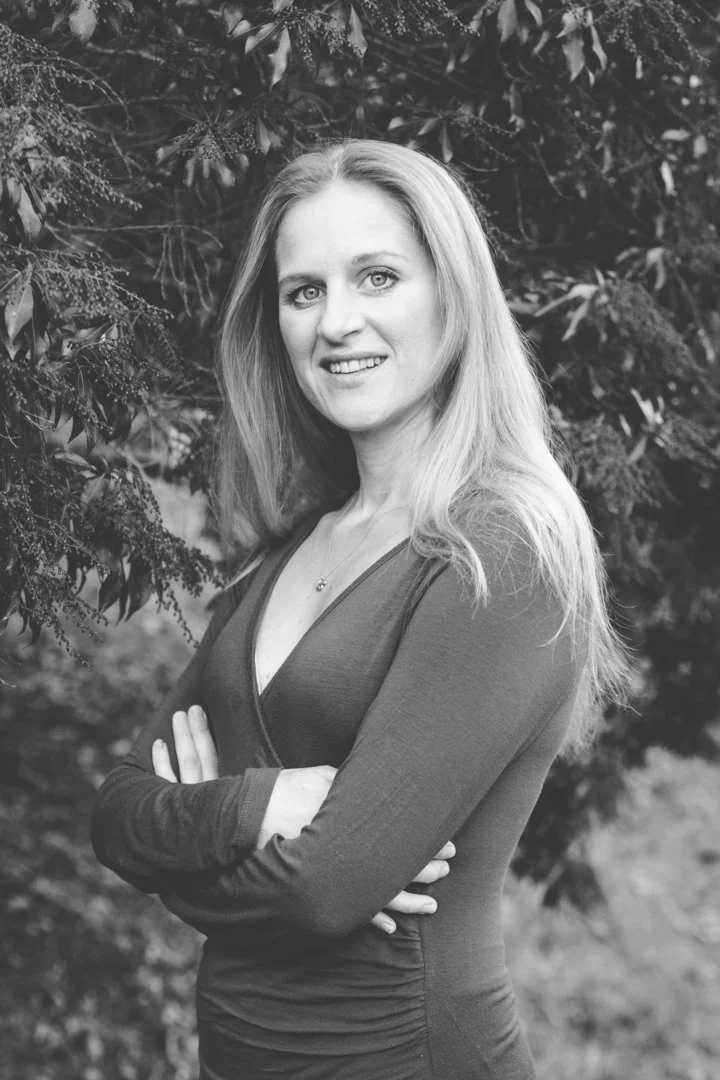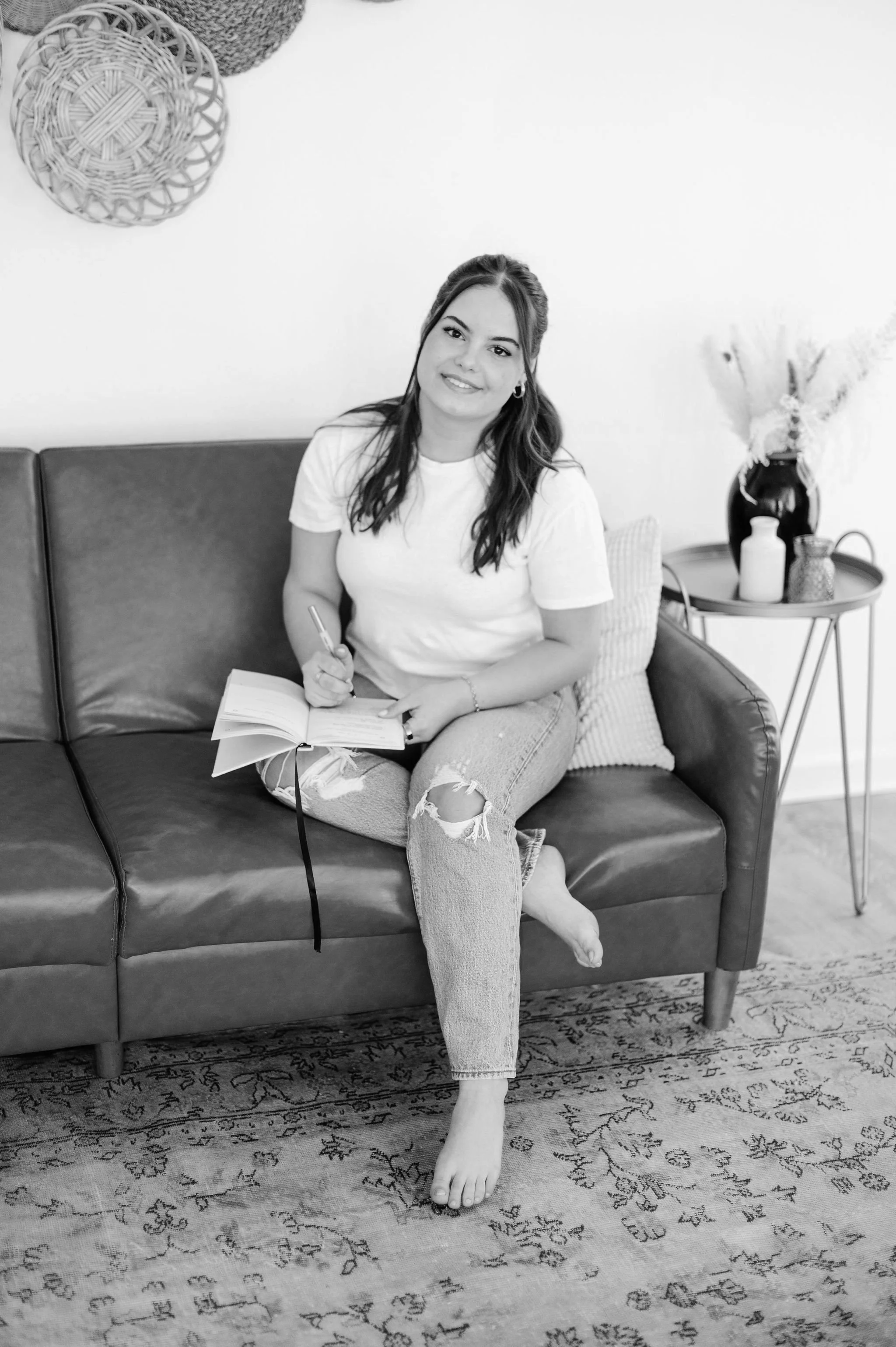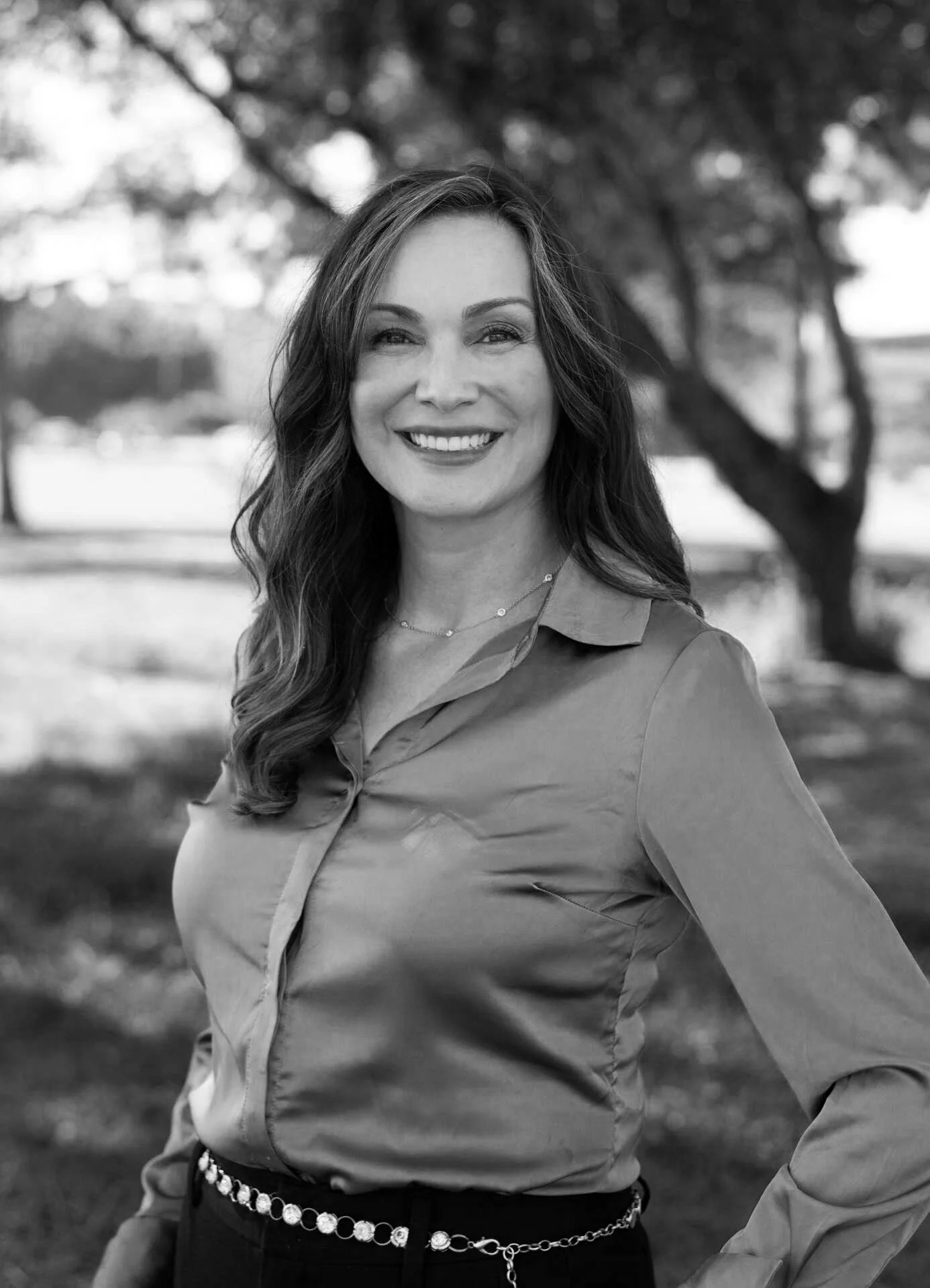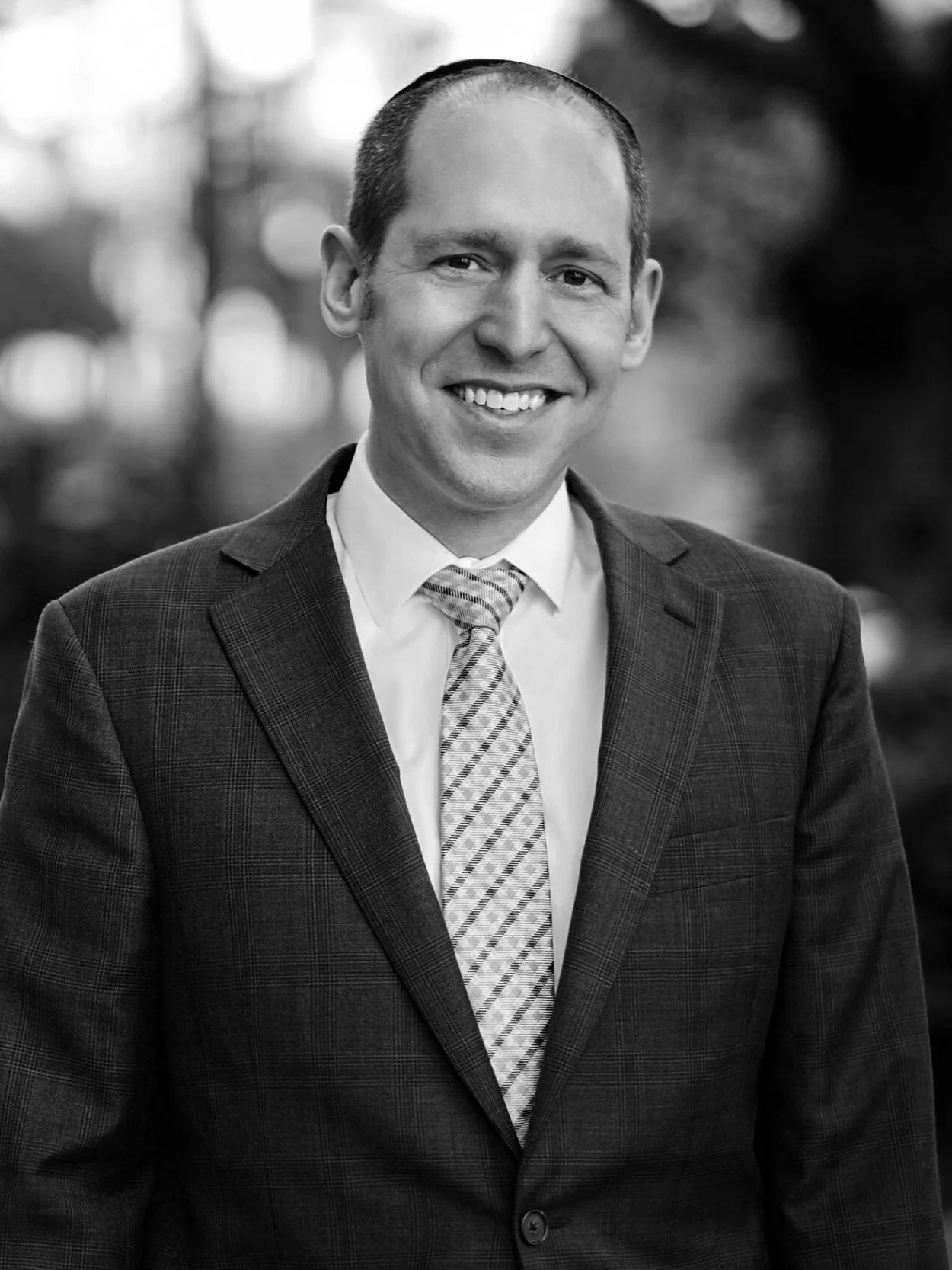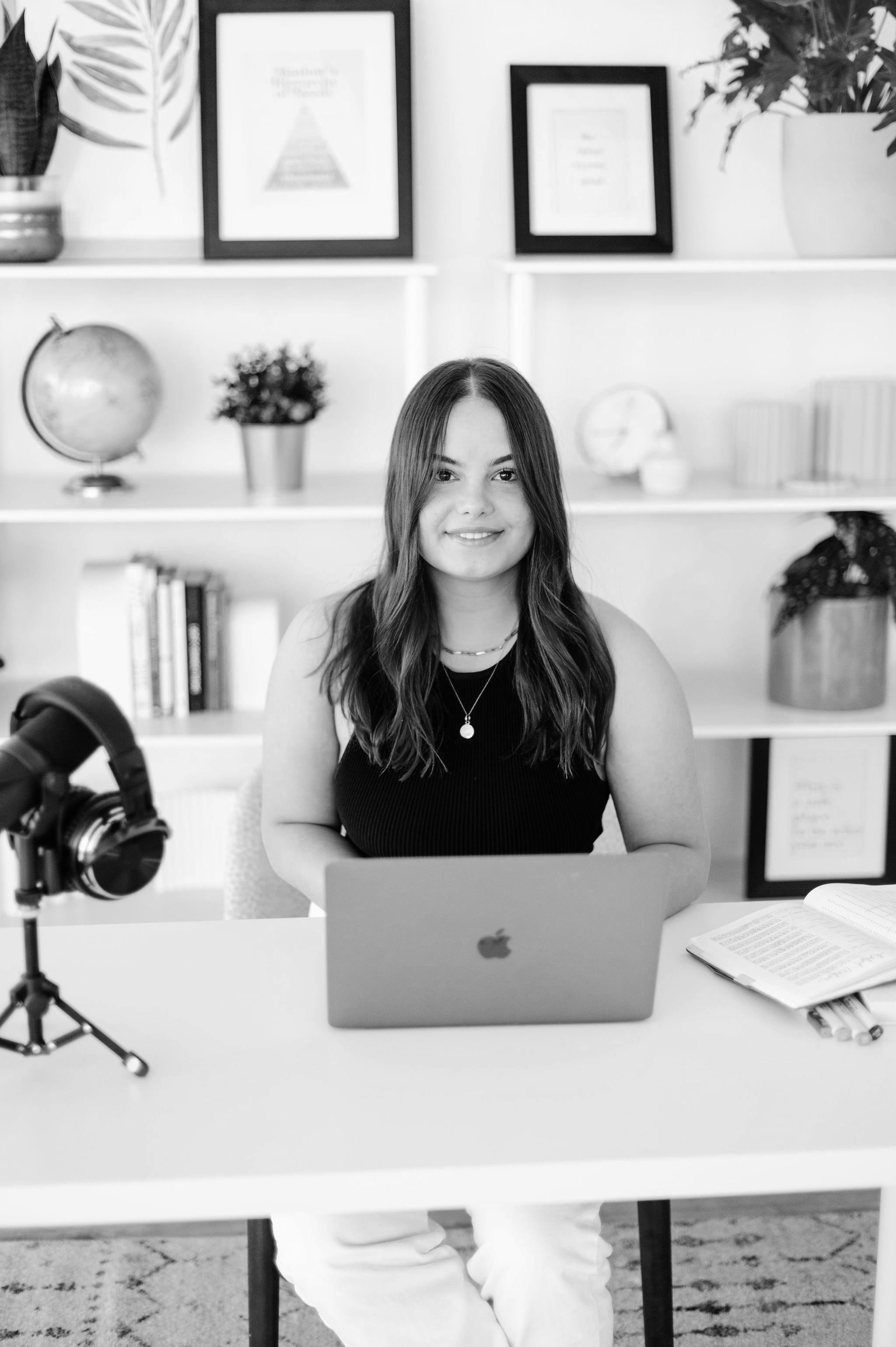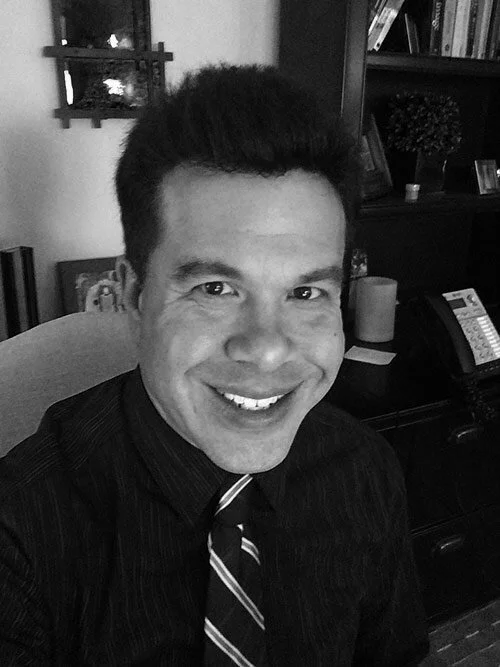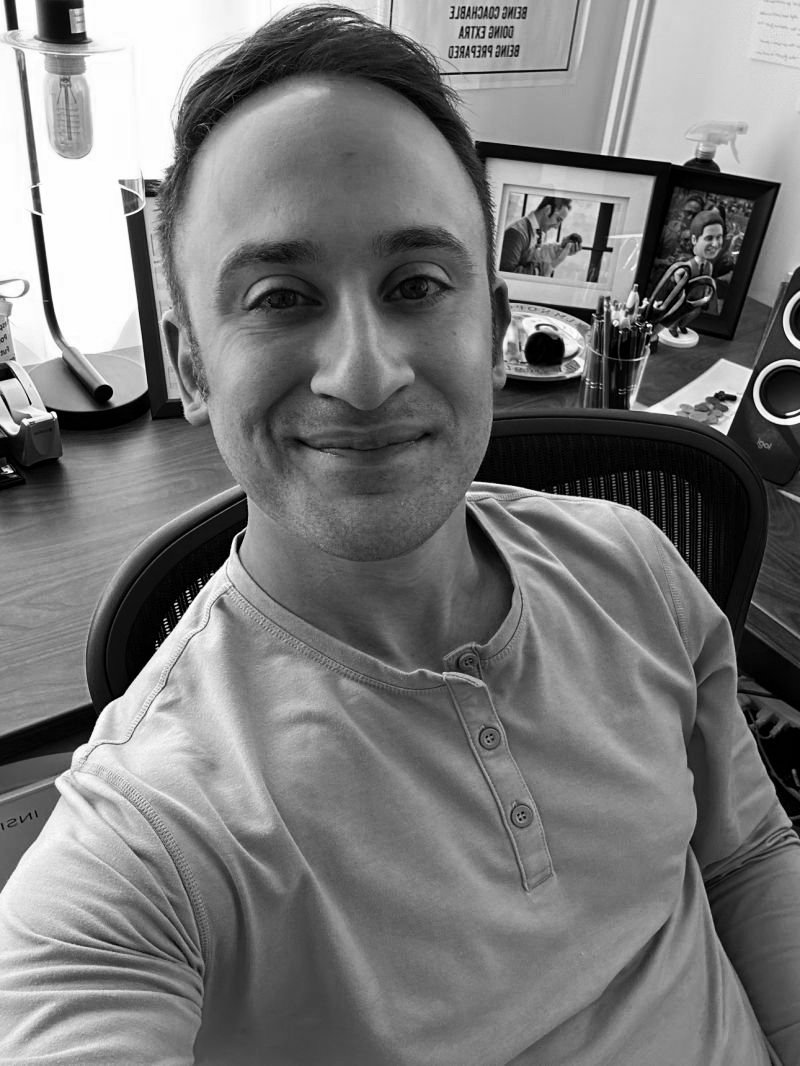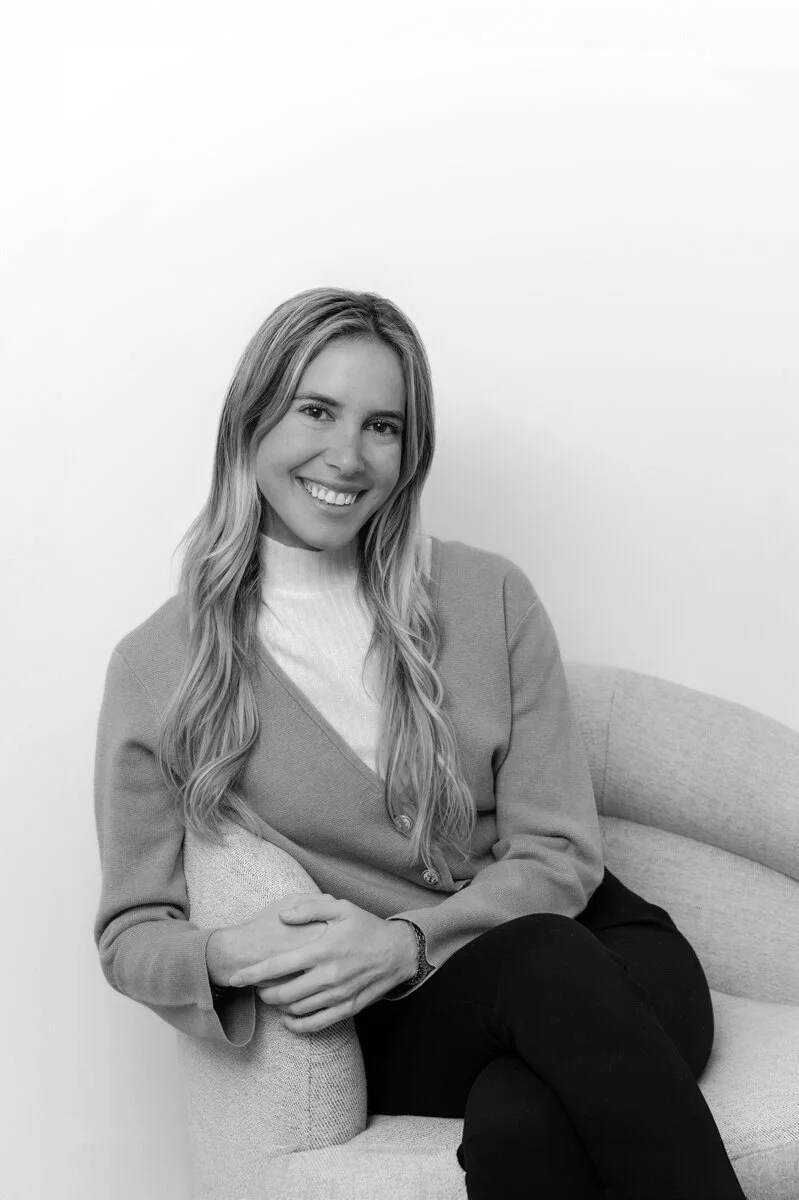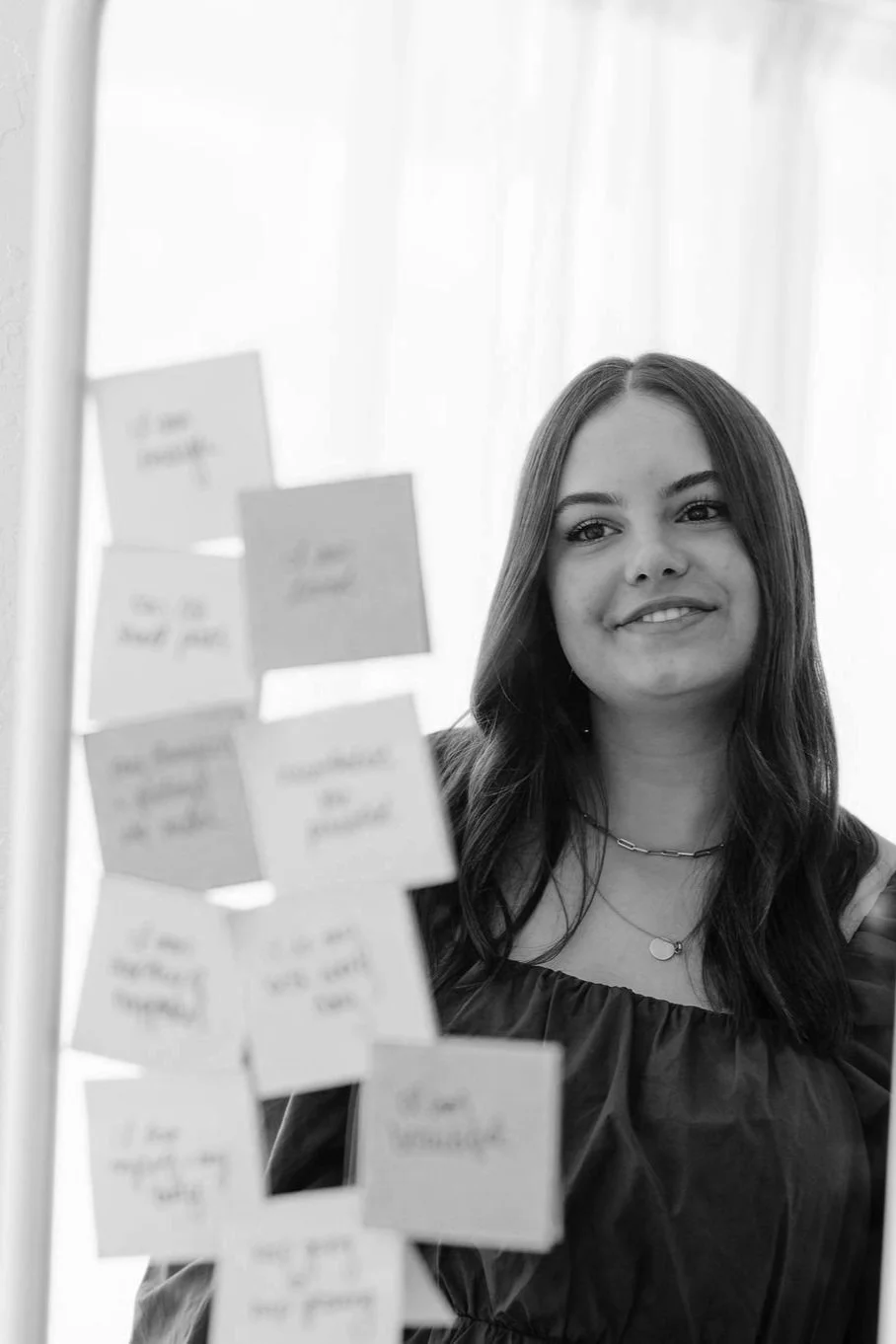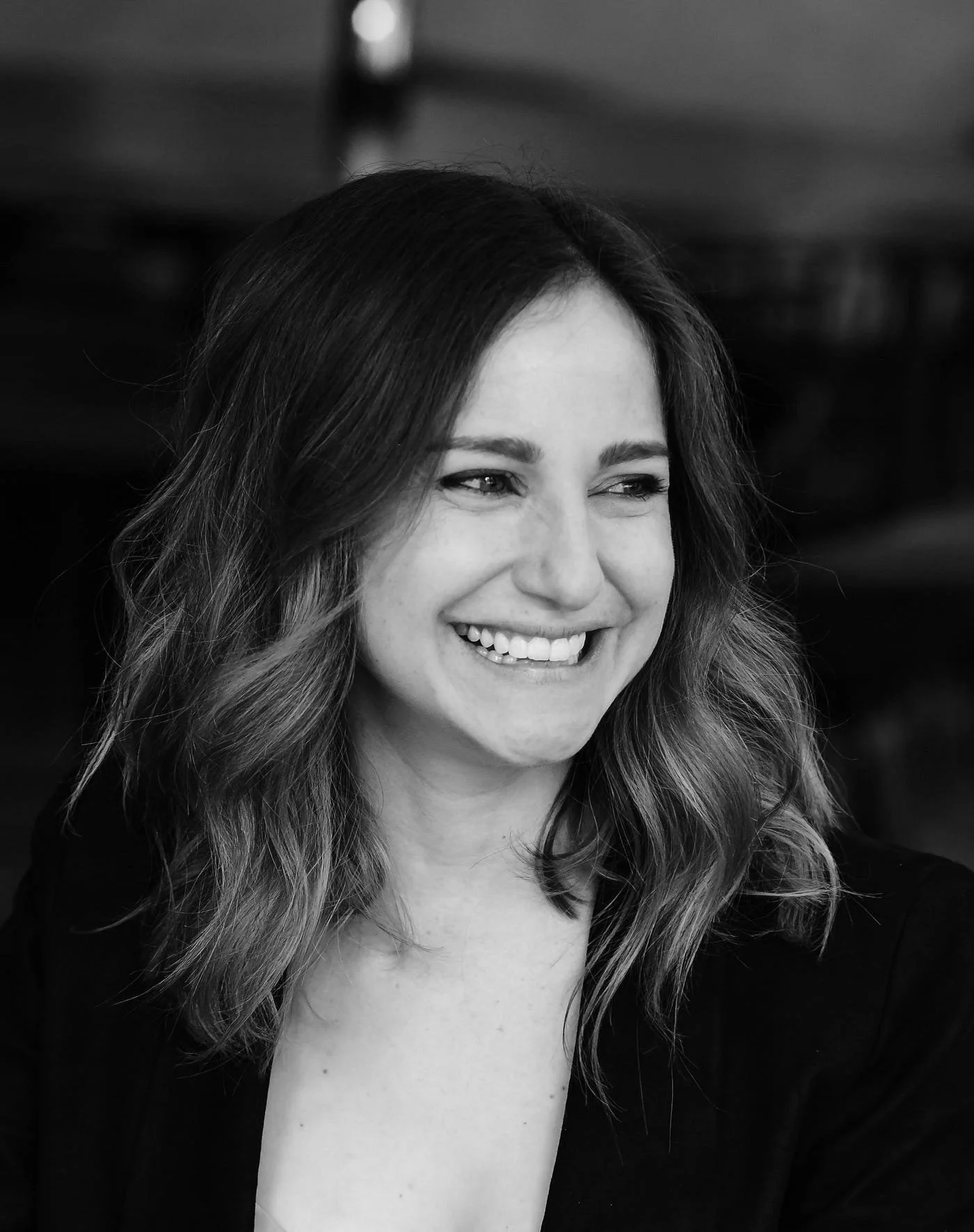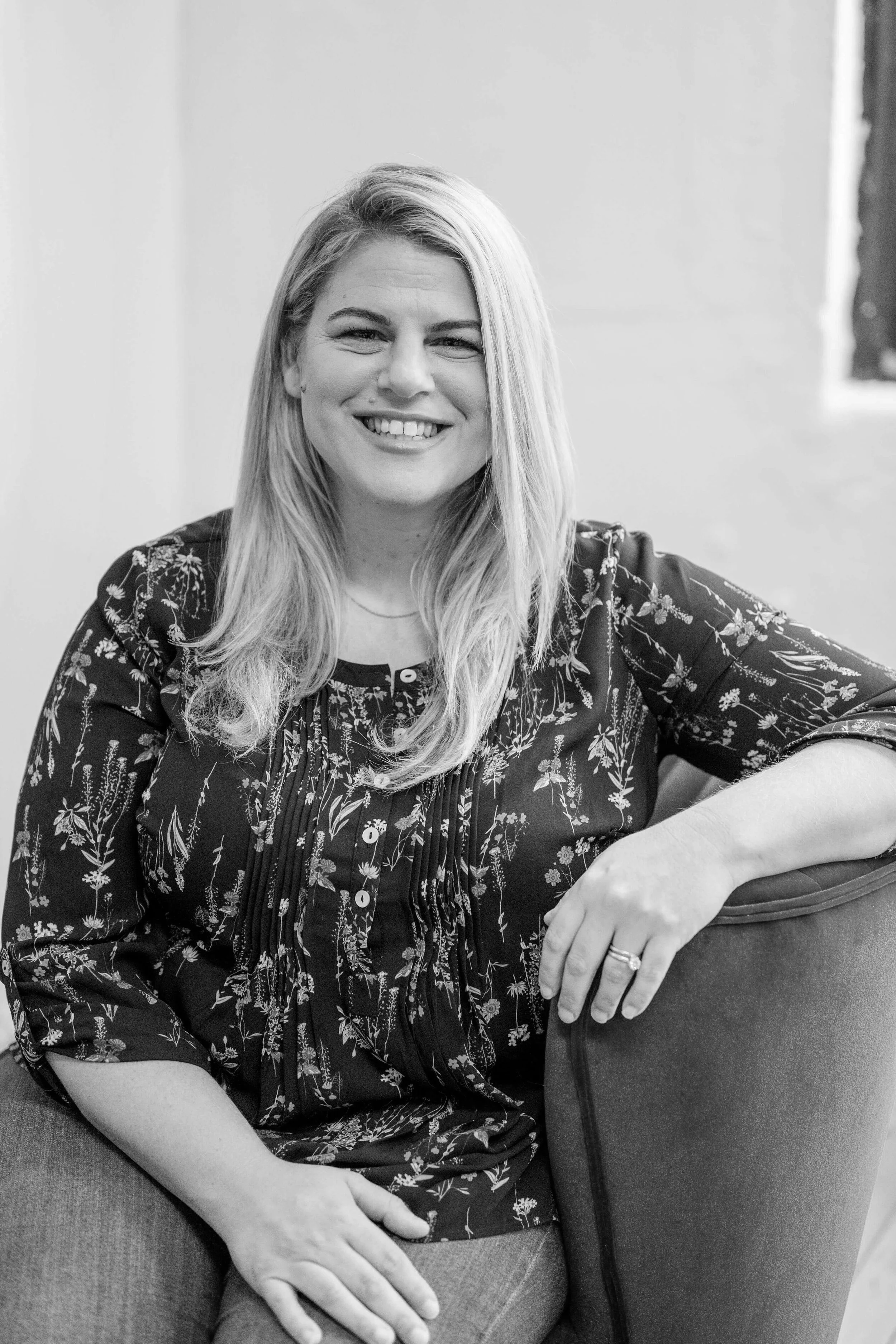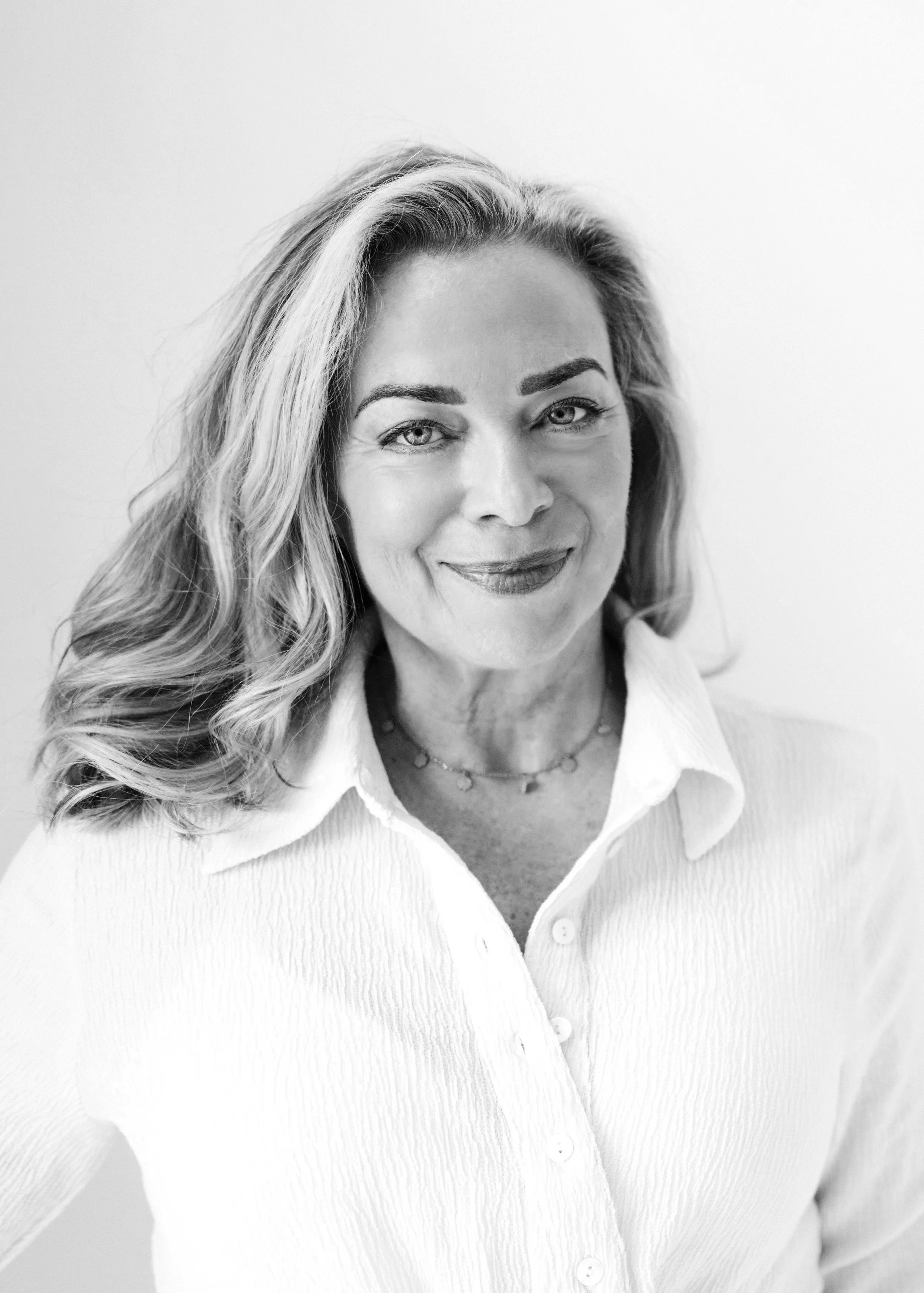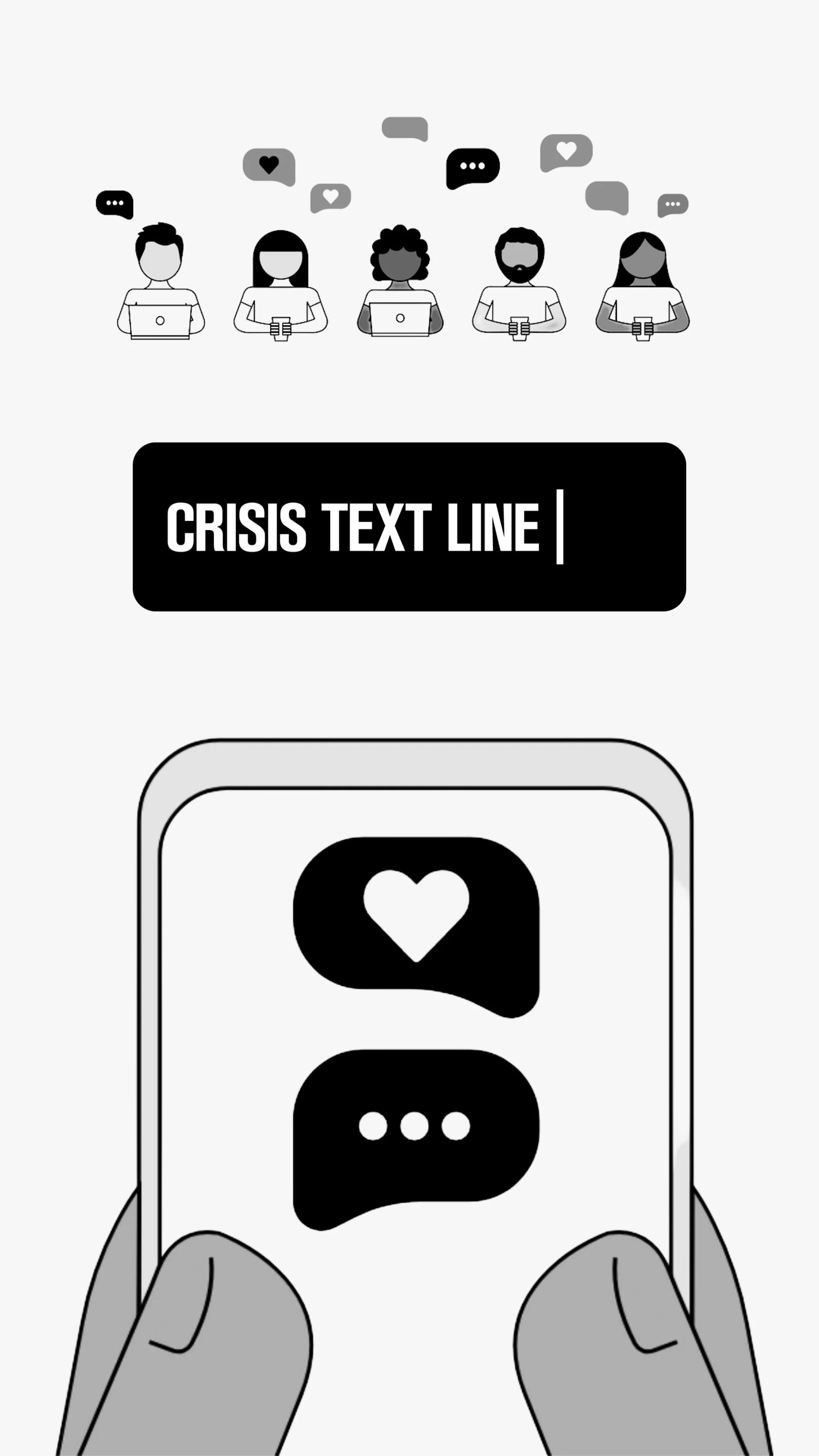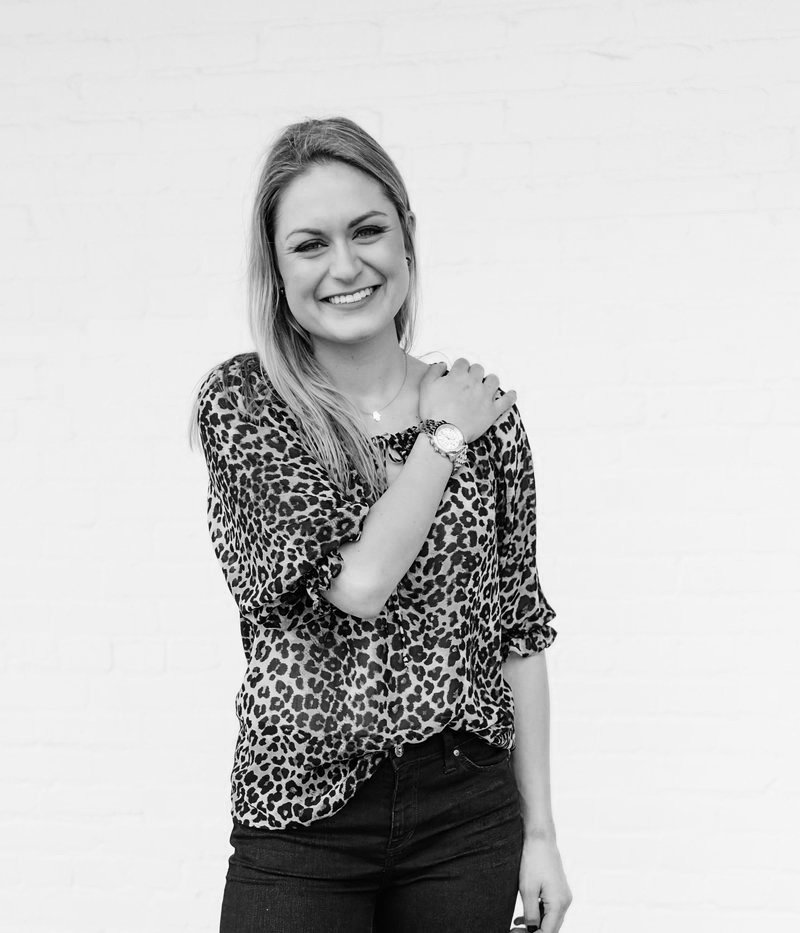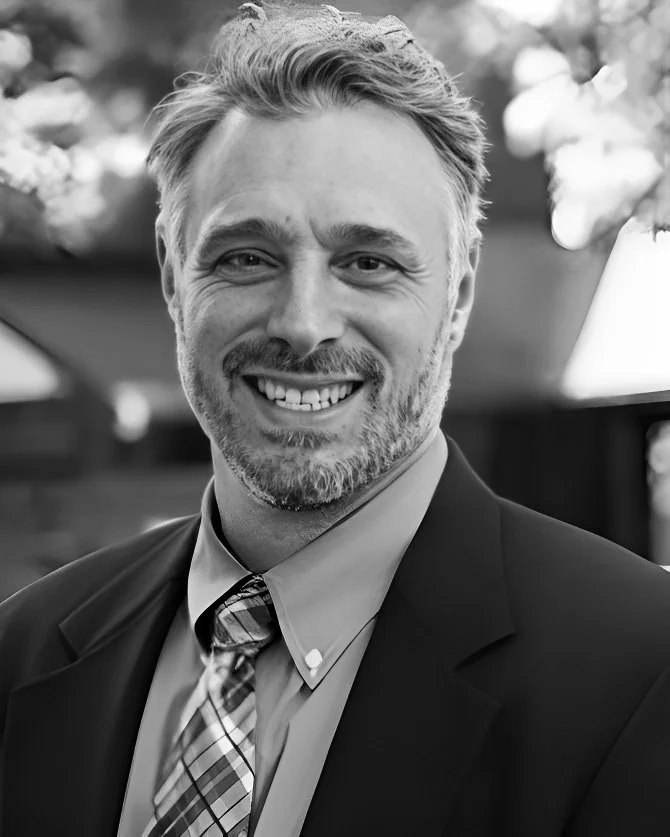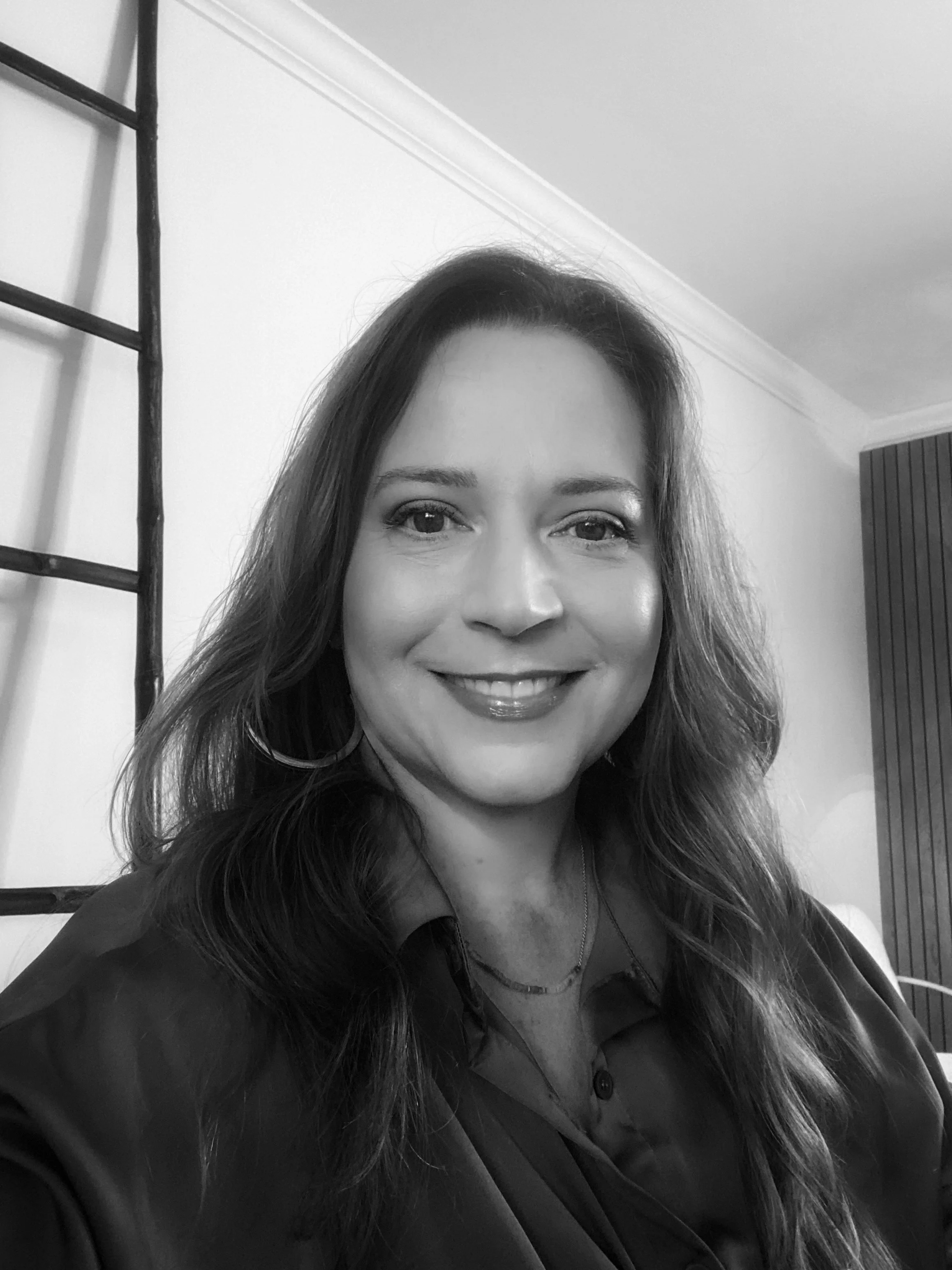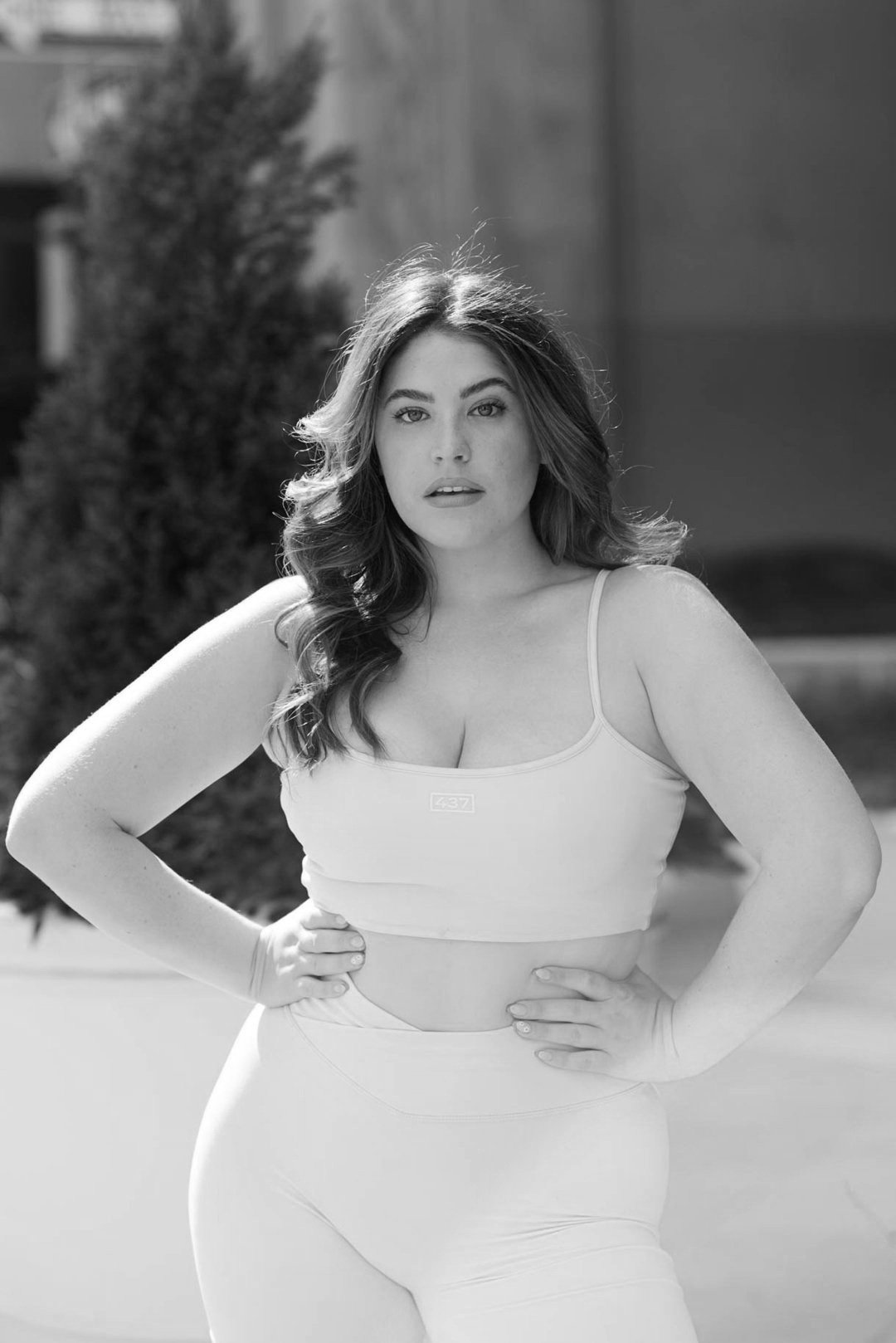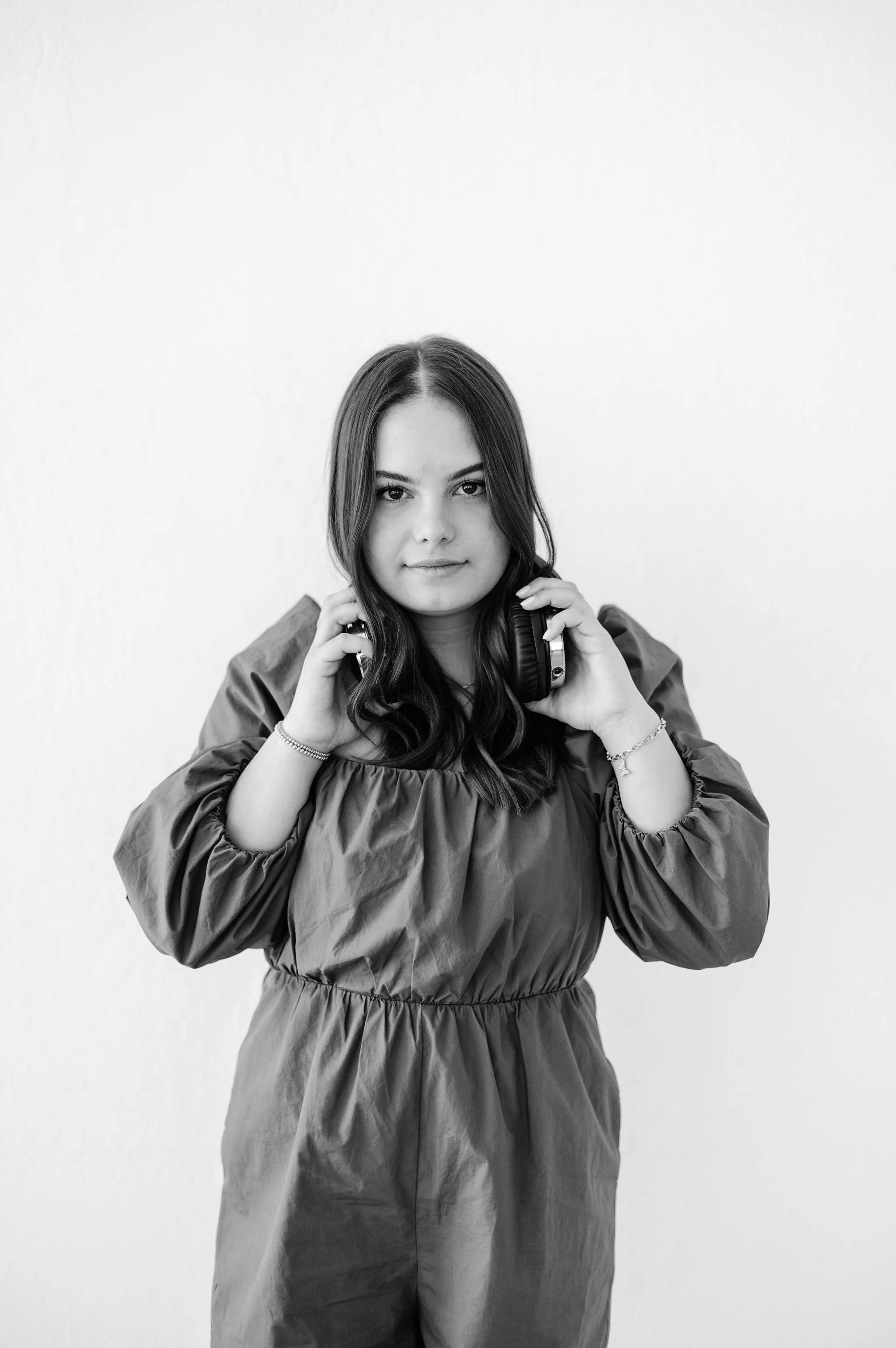152. Healing Your Relationship with Health: Diet Culture, Exercise, Eating Disorders, & More feat Abbie Stasior
listen to this episode:
Tune in and subscribe on your favorite platform: Apple Podcasts | Spotify | Stitcher | Google Play | Radio Public | PocketCasts | Overcast | Breaker | Anchor
Today's guest is Abbie Stasior— a Columbia University graduate student, soon to be Registered Dietitian Nutritionist, and founder of Be About Being Better, a company that aims to show people a diet-free, sustainable healthy lifestyle is possible. In this episode, we discuss the dangers of diet culture, the differences between being healthy versus engaging in disordered behaviors and when to get a professional’s opinion on your health, steps people can take to heal from under-eating or over-eating, how to create a more healthy relationship with exercise, and tips for how to give yourself grace when making changes to your health.
Abbie's Instagram: https://www.instagram.com/abbie.stasior/
Mentioned In The Episode…
+ She Persisted Ep. 45 with Abbie Stasior
SHOP GUEST RECOMMENDATIONS: https://amzn.to/3A69GOC
About She Persisted (formerly Nevertheless, She Persisted)
After a year and a half of intensive treatment for severe depression and anxiety, 18-year-old Sadie recounts her journey by interviewing family members, professionals, and fellow teens to offer self-improvement tips, DBT education, and personal experiences. She Persisted is the reminder that someone else has been there too and your inspiration to live your life worth living.
a note: this is an automated transcription so please ignore any accidental misspellings!
Abbie: When we're in diet culture, everything is so strict, all or nothing like we're either doing it or we're not black and white. No. When you have a balanced, healthy lifestyle, things are fluid and always changing, and you're always checking in with yourself, how do I feel and what do I need today to.
I show up for myself,
Sadie: hello. Hello, and welcome back to She Persisted. We have another repeat guest on the podcast this week. Last week we had Kate Stone.
This week we have Abby Sta here back on the show. I absolutely adore Abby. I've bet on her podcast, which I'll link in the show notes. But she is a diet free, sustainable, healthy lifestyle coach. She is a dietetic intern at Vanderbilt. She got her masters at Columbia and she's also the founder of Bebot Being Better, which is a health coaching company.
She is absolutely phenomenal. And what I love about Abby is that all of her recommendations are research backed. She takes a really sustainable, holistic and effective approach to making changes in your life that will be long-term and that will be sustainable. And the first time I had her on the podcast,
before she was at Columbia, I'm pretty sure she hadn't done her dietetic internship, so it really is a full circle moment. I was the first podcast she ever went on. Now she's been on tons. She has her own show. She's absolutely incredible, and this conversation does not disappoint. We're talking about something which we haven't talked about on she persisted before in this much depth, which is healing your eating cues, your.
Nutrition habits, your exercise routine when you've been over under eating, over under exercising. So if you're struggling with restriction, how do you get back to a more balanced diet? If you're struggling with binging and overeating, how do you get back to being more balanced and consistent with your meals and your hunger cues?
If you've been under exercising and avoiding it like the plague of me sometimes, how do you get into a consistent routine and start that practice? Or if you've been over exercising in an effective way, how do you shift that relationship with exercise? So, Some really tactile and important things in recovery, but also I think things that everyone can relate to because our health journeys are always coming and going in waves.
Nothing is 100% constant. So I really hope this conversation is helpful. Abby gets vulnerable about her background. It's phenomenal. I'm so glad she came back on the show and I know you're gonna love this conversation. Also worth mentioning that my recording environment was like the biggest hot mess ever.
My dogs were coming in and out. They were barking. They wanted to be on the podcast. So I'm doing my best in editing to make sure you don't notice that at all. But if there's any moments where you're like, what is going on? Blame my dogs. Well with that, let's dive in.
\Thank you so much for joining me on She Persisted again. You were one of my first guests that I ever had on the show. And we talked all about using your healthy habits to support your mental health and giving yourself a good foundation with sleep and exercise and diet because those things are so important when you are at risk of struggling with mental health.
And so, We've really come full circle. I've come on your podcast, we've worked together in so many ways and I was thinking about what episodes I haven't done before and topics I haven't covered. I was like, I've never talked about healing an imbalanced relationship with your health. And I was like, I know who to bring on.
Abby's coming back on the podcast, so I'm so excited to have you here. Yay. Thank you so
Abbie: much for having me back. Sadie and being on Chief Persistent was my first podcast interview ever. Really crazy.
Sadie: So yeah, really's full circle for us. I love it. I love it. Now we both have podcasts. Everyone should go listen to be about being better.
Podcast. It will be in the show notes, but so first circle. It makes me so happy and I'm just so excited for this. So for those that haven't
heard your story and haven't listened to your show before, can you give a little bit of context to your own health journey and then also all of your amazing credentials because you are so talented.
You are extremely qualified in this industry, and I think that's so unique in all of the social media space, especially with health and wellness and fitness and nutrition, as everyone is like throwing their hat in the ring, giving their 2 cents, and you really are an expert here, so love to get some context on your story and then also everything you've done.
To build up your, your professional educational credentials, , to make sure that you have the research and the science backing all of these recommendations.
Abbie: Yeah. Thank you so much. I appreciate that. Of course. And even if people did listen to our first episode together, things have changed for me over the last Yes.
Several years too. I feel like y'all. Just saw, saw me at the beginning of my journey. I know. So it's just grown a lot since then. So I am the founder of Be About Being Better, which is a health and life coaching company that helps people develop a sustainable, healthy lifestyle through a non-diet approach.
And that's really the only way that you can actually sustain a healthy lifestyle over the long term is if you really and truly break away from diet culture. So we help people do that. And I have officially graduated from Columbia University. I got my master's degree in nutrition and exercise Physiology.
So when I came on the show last, I had just started the program. So we've graduated now, so I have that dual master's degree and I'm also a certified intuitive eating counselor. And I am on my way to becoming a registered dietician. So I'm currently, I have three weeks left of my dietetic internship at Vanderbilt University's Medical Center, and then I'll be taking the registered dietician exam like next month.
I'm so excited. So then we'll be crazy. Officially a registered dietician. Yeah.
Sadie: So exciting. Yeah, huge. Congrats. It's just been so cool to watch and all the props to you, you work so hard. Like guys, I have a podcast. You know how hard it is. Abby batches all of her episodes. She's done through July. At this point, I'm like, what am I releasing next week?
She is an incredibly hard worker and is balancing it all. So it's just so amazing and I really appreciated that you were able to come on. She persistent.
Abbie: Of course. Thank you for having me. I appreciate it.
Sadie: The first thing that I wanted to touch on that you just mentioned is how you define diet, culture and diets, because I feel like everyone has a subjective understanding, and especially depending on what your habits are, you might be like, well, this isn't a diet, this is just how I always eat.
Or this is just what, , what I like to eat, et cetera. And so how do you define diet culture to clients and also in, in the social media space and on your
Abbie: podcast? Yes. Just because we've been doing something for a long time doesn't mean that it's healthy. We might still be in the thick of diet culture and really have, you know, the scales over our eyes and be blind to how restrictive Yeah, how unhealthy our behaviors actually are.
, and I have personal experience with this when I started college. I started college as a dance major. We've totally flipped that after my first semester, then I switched to neuroscience. But , at first
Sadie: neuroscience, neuroscience is an insane major. We just have to go on that tangent because I don't know how you did that.
That's crazy. Okay. It's really hard.
Abbie: It's really hard. And my family was like, we thought you wanted to do dance. This is night and day. But they were also very happy cuz we're like, we didn't know what you were gonna do with dance for all these days. Like, I didn't really know either, but I was just really passionate about it.
And so I was trained in classical ballet. For now over 20 years. So I was just a birth and there's a lot of diet culture and disordered eating and eating disorders in the dance world for sure. That could be a whole other podcast episode. But I started college, you know, I came in, I guess in high school I was dancing 30 hours a week.
It was really my life. So when I went to college, I was. Terrified of gaining weight in the freshman 15. So I thought if I just keep exercising at that same level, doing what I've always done and what my body knows, then things won't change. Was I wrong? It got to be so excessive to try and hit that number of hours.
I mean, I was doing my, when you're dance major, you have rehearsals and you have dance classes and all of those things. So I had my structured classes. But I started going to the gym before class, after class, in between classes, going back to my dorm to do a quick cardio workout and jumping jacks and pushups and burpees in my dorm room and walking everywhere, taking this stairs, just trying to get extra steps in living by my Apple watch.
Did I get 10 K steps that day? Eating only salads and chicken like it was. Very, very disordered. But for me it was like, well, that's what I've always done, but hindsight's 2020. Let me mad. It's like, whoa. That was very extreme and disordered and especially coming into college where you're making all these new friends in your life is just so different.
It was very isolating that first semester. It was hard for me to make friends because I was truly exercising or in class. There wasn't time. Yeah. There literally was not time. And after one of my dance classes, I left and I was walking back to my dorm and I had this horrible chest pain. Yeah. And I know just, I come from a very medical family.
I know when chest pain is serious, like you and I remember, and I called my dad on my walk home and I was like, dad, it hurts to breathe like I don't know what to do. Almost felt like an elephant was sitting on my chest. So I'm like, that's a hard attack like this. Yeah. Which women have different symptoms for a heart attack than men do.
So my dad's like, you're probably not having a heart attack, but you know, let's get you some help. So I ended up calling myself an ambulance. And they took me to the hospital and they said, you have strained all of your intercostal muscles, all of the muscles in between your ribs from exercising so much like your body is freaking out and telling you you need to stop.
Wow. Yeah, like I was like, when you breathe and your heart rate's going and you're breathing like you're using your chest and your heart rate's going like these are all normal things. I was over exercising. Really to the ends degree and they like, you need to slow down. They basically just gave me stronger Advil and called it day after they ran all these crazy tests.
Oh, it was so expensive. It hundreds, thousands of dollars. , I was paying off for a long time. And yeah, so after my first semester, I had to totally take a break. I wasn't allowed to dance, I wasn't allowed to go to the gym. I was really, I almost put on lockdown and that's when it really sat with me.
Wow. What I had defined as healthy. Was really disordered. And for so many years I thought that that was healthy. So going back to our definition, if you are living your healthy lifestyle through rules and different, like external things, like you think, I'm only healthy if I hit this number, if I see this number on the scale, if I see this number on my Apple watch, if I do all of the rings and you know, I, I close all my rings, then I'm being healthy, then I'm being successful.
We're not truly living a healthy lifestyle cuz we're measuring our success by these external factors. And probably, I would assume, definitely ignoring our body's internal cues. Cause my body was giving me so many signs. This chest pain was just my body screaming at me. Like, Hey, you've missed all of these other signs.
Now I have to scream at you to force you to slow down.
Sadie: Yeah. Wow. It's, I love how you explain that, that just because it's what you've defined as healthy doesn't make it balanced or realistic or reasonable or sustainable. And I think that's such an important reminder, especially for teens and young adults that are making that transition, like you talked about from high school, where high school schedules are insane.
Like it's only in hindsight where you're like, how did I do that? That was just so many hours, so much output, and so, Making that transition, especially for individuals that were participating in sports in high school and then going to college and either trying to maintain that or just losing it all together and then struggling.
It's something that's really common and I think is, is a difficult thing to grapple with. And so I think you explained that so well. , and how do you recommend that people. Get that, almost like that second opinion or retake a look at their behaviors and habits. Was it helpful to get a second opinion, get a professional's insight?
Or was it more internally that you were able to make that differentiation and look back and say, okay, maybe this isn't as balanced as it
Abbie: should be? Hmm. I think it's a combination of both, but I think in the beginning it's so hard to be objective with yourself. Yeah, because you're just so in it and you're probably blind to so much, and you're probably not able to discern at that point what's disordered, what's not, what's too much, what's not.
Especially because, and I'm sure a lot of the people that listen to your podcast are very high achieving, and we gain a lot of our self worth through doing and hustle, hustle, hustle. And we feel guilty when we let ourselves rest, when we actually need rest to be able to succeed. So I think it's just very hard for overachievers, especially to be able to discern.
When we need to give ourselves grace. So I think it's important to get an outside opinion at that time, whether that's getting a health coach, working with a registered dietician, a personal trainer, and depending on the healthy lifestyle and your goals and what you need. The health professional therapy.
Yeah, everybody needs to be in therapy for sure. the health professional that you need could be different depending on your goals. For me, I ended up hiring a health coach who was also a certified personal trainer. So that it was helpful for me to get that accountability and have someone to message back and forth with.
Mm-hmm. To be like, Hey, is this too much? Oh, I feel bad that, you know, I missed my workout today. today's gonna have to be a rest day. And that's the other thing, like I, at that point in my life, if I had skipped a workout, I felt like I failed. But my coach helped me reframe that and be like, no. You're not failing.
You didn't skip a workout. Today's just a rest day. We're just shifting things around so things can be more fluid. When we're in diet culture, everything is so strict, all or nothing like we're either doing it or we're not black and white. No. When you have a balanced, healthy lifestyle, things are fluid and always changing, and you're always checking in with yourself, how do I feel and what do I need today to.
I show up for myself, and it's important to expand our definition of what health is because when I was really in the thick of diet culture, I only assumed that healthy habits were exercise or nutrition related. I did not consider sleep, mental, emotional health, social connections, water intake. I didn't consider any of that.
Sadie: Yeah, and those are so important. And I think for me that was one of the biggest takeaways from going to treatment and hitting that rock bottom, like your body, your mind is screaming at you like something needs to change is that without that foundation of health, whether it's mental or physical, you have nothing.
You can't perform as a student. You can't show up in your relationships. You can't. Do all these things that are really important for you and aligned with your goals and your future. And so it's absolutely essential to be able to create that balance, whether it's mentally, physically, socially, emotionally.
And so I'm so excited that we're gonna give some amazing tips that people can Yes, start that journey and start that process if they, like you talked about, are like, maybe this isn't super balanced. Maybe I'm not in the best place, but I don't know where to go. So to start, we're gonna talk about both nutrition, exercise, and then just a balanced lifestyle in general, because what I love about your approach is you bring in all of these things, like you mentioned, water intake, things like journaling, routine. Mm-hmm. Sleep, like all of these little micro moments that actually do have big impacts on your health, both physically and mentally.
So to start with eating, I think that when we think about. Unbalanced eating, unhealthy eating behaviors, eating disorders, however you wanna say it. It really is like overeating or undereating. And of course there's so many other things that show up there, but when I was taking abnormal psych, last year, one of the things that blew my mind was that anorexia and bulimia have the same symptoms. It's just your weight classification that is the difference in the diagnosis. I was like, what? Like that's crazy. And so I think that helps to simplify things and be like, people are struggling with.
Similar behaviors. They're struggling with similar thoughts and patterns and emotions. So how can we address those? So I'd love to start with talking about undereating. If someone is undereating, we won't get super into graphics because that can be triggering for people and all the things that you know.
But if someone is like, I think I'm Undereating, or if they've been told by a physician, they've been told by a professional, like you talked about the resources people can go to. What steps do you recommend to begin healing that journey, healing that behavior, and getting to a more balanced state? Whether it's thought patterns, whether it's implementing things like snacks, mealtimes, et cetera.
How do you recommend that people begin going from undereating to a more balanced approach to their diet?
Abbie: Yes. First, we have to make sure that all foods are fitting in our diet and they're not being restricted. So there's two different types of restriction. There's physical restriction where we're not letting ourselves eat the food, and then there's mental restriction where it's like, maybe we're letting ourselves eat cookies, cake, ice cream, chips, all of those things.
But in our head, we're thinking to ourselves, okay, I'm gonna have to work out extra to work this off, or I'm not gonna be able to eat later because I ate this now. So we, there's two different types of restriction and. Different tips for both, but I think first we have to let go of the physical restriction.
The mental will come with time. So in order to make all foods fit, I'm not saying we have to eat every single food every single day, but just over the course of, you know, your week, year, month, are you allowing yourself to have these things? You have to be. A critical consumer and start to examine what are the food rules that I currently hold.
I was speaking with a patient just this week and she had a lot of food rules and she's like, I don't eat meat. She knew she was low in protein. She gave me a whole, like, she was able to recap a day for me. , And which it took her a while to remember. She's like, I'm just having a lot of brain fog. I don't really remember what I ate, which that's a sign for me.
Like, okay, we're not getting enough calories overall. Yeah. And then, and just estimating in my head, After she gave me a full like 24 hour recall of what she ate yesterday. Yeah, this is not gonna work. Yeah. I was like, there's like nothing barely anything there. And I was like, you know, you know ma'am, it seems like you're really lacking protein.
And she's like, well, I really don't like to eat meat. And so then we started talking about other plant-based protein sources and things like that. And she mentioned that she likes yogurt. So I was like, well, what about cottage cheese? And she's like, oh, I love cottage cheese. I go, oh, that would be great.
You could put some fruit on top. And she's like, oh, can't have fruit. Fruit has too much sugar. So I'm like, okay, that's a myth that we have to debunk cuz fruit isn't too much sugar. I was like, this is nature's sugar. I was like, this is what we need. It's got vitamins and minerals and fiber and this is the sugar that we should be having.
Okay, then you know the cottage cheese thing. She's like, well, I don't know if I can have cottage cheese because it has too much sodium. And I was like, well, you don't have hypertension or high blood pressure. You don't have to worry about sodium. And we actually do need some sodium in our diet.
You having, you know, one serving of cottage cheese isn't gonna go overboard as far as sodium. Yeah, this would be a healthy, low fat protein source for you if you don't like meat. But cottage cheese with fruit is a perfect balanced snack cuz we're pairing multiple food groups. So she was, you know, by the end of the appointment, I could see she was physically more relaxed and Oh okay.
Like, I could maybe allow myself to, to try that. And so I, I would say to anyone listening, the first step would be we have to work towards making all foods fit and not physically restricting different food groups. And that takes first examining. What am I restricting and why did I see some TikTok that told me that I can't eat fruit and that was too much sugar?
Do, did I hear from a friend that I need to restrict all carbs because they went keto and lost all this weight? Like, you know what? What are the food rules? What have we heard? And. , can I debunk those? Most of the things that we hear about nutrition online are very inaccurate.
Sadie: Yeah. No, there's so many things floating around, like sea moss gel comes to mind.
Like there's just so much going on on the internet these days that I do think what you're saying is so important, which is to really check the facts
Abbie: The next step I would say would be to listen to your hunger cues.
If you're waiting to eat un, like when you hear your stomach growl, you've waited too long to eat. Mm-hmm. You've missed, that's your body screaming at you. Similar to me with my chest pain, I had missed all the other signs that I was over exercising. So if you're waiting to eat until your stomach growls, you've missed so many other hunger cues that are more subtle signs that your body's ready for nutrients and ready for more fuel.
So this patient that I was speaking with, she said, oh yeah, I get shaky. I get super irritable. I yell at my husband. I get really moody. I'm thinking to myself, oh, this hungry. She's angry. Yeah, she's angry right now. I was like, she wants fuel, but. She didn't see that when she said, oh, I have all this brain fog.
I can have fatigued. I can barely, you know, walk up the stairs. And this woman was a very physically fit woman, but she can barely walk up the stairs. She's definitely not eating enough. So there have been, you know, so many signs. , so some common, subtle, subtle signs of hunger would be headache, fatigue, lack of focus, irritability.
Sometimes you do feel a little sensation in your throat or your stomach, like a achiness or. Like your body's like craving. Yeah. You know, , some people get cold just, you know, poor circulation. And again, as you just, it's hard to focus and you get irritable, you get hangry. So I would say start to be in tune with those more subtle signs, and then take it as a huge sign and alarm system when your stomach is.
Growling, you've waited too long and oh, that's a cue for you to eat, but also a cue to, okay, I missed some signs before and I waited too long to eat. So I'll take that as feedback and I'll eat sooner next time and I'll be more in tune with myself. Our bodies are so smart it, they will tell us when they're ready for more fuel, and we really should be eating every like two to four
Sadie: hours.
Yeah. Yeah. When people are trying to become more balanced in their nutrition and the way that they're fueling themselves, what are your thoughts on like planning out your day versus just like you're talking about, you're like, oh, I'm hungry.
I'm going to eat now. How do you help people be successful in getting all those nutrients, especially when they're very conditioned to not hit those, those goals?
Abbie: Yeah, I think you have to have some structure, but you also like set the intention but then release to the outcome. I've just, I've had patients message me and they're like, I.
You know, planned out all of my meals, but I, I'm so full, I can't eat all of my dinner, or I just, I'm not hungry for my afternoon snack. Then I'm like, don't have it even though you prep to save it for tomorrow. Like, you have to prepare because we want to make nutrient dense options more convenient because if we don't plan any meals throughout the week, and I'm not saying you need to cook or make every single meal for throughout the week, I don't think that that's realistic.
We need to leave some room for flexibility. But if you don't prep or prepare anything, Then you're really just flying by the seat of your pants and you're gonna gravitate towards more calorie dense options and probably miss opportunities to get all the nutrients that you need in a day and in a week.
So we need to have some structure and prepare so that the nutritious and nutrient dense options are convenient for you to grab, but you also have to keep checking in with yourself. Okay, do I really feel like this right now? Is this what I want? Am I hungry? Should I stop eating? Am I satisfied? , or do I feel like something else?
You know, sometimes I'll meal prep something for myself, and then I have it for a couple days, but then by Thursday I'm like, you know, I don't really feel like this anymore, so I'm either gonna make something else. Yeah. Or, you know, go out with friends or order in, you know? And it's okay to do that and deviate from the plan.
And if you are in a place where you are so stressed out by deviating from the plan. That might be a sign that things are a little disordered if you have to be so regimented. So it's like, yes, we're gonna set the intention, we're gonna prepare ourselves, set ourselves up for success in getting nutrient, changing our definition of success, getting more nutrient dense items in, and trying to eat consistently.
That's, I think, success with healthy eating and not restricting ourselves. we need to release the outcome, and it's okay if things change based on how our body feels in the moment.
Sadie: I think that's such a great place to start, especially just the mental scripts that you've created around the foods you're consuming when you're consuming them.
I think reframing that will be really helpful and being more open to, again, accepting all foods and being more consistent in balanced with the day-today. When it comes to the other end of the spectrum, overeating things like binging, , or even if it's. Which I'm sure you have. So many patients come in where it's not necessarily that they mentally are struggling, but their food choices are maybe impacting their health, and then that becomes a vulnerability for their mental health if their health is struggling.
So when people are, again unbalanced, but at the. Other end of the spectrum, things like binging, overeating, what are, what are your tips there and advice there to becoming more balanced and. More consistent with meals and less overwhelmed by these moments, again, that are centered around food.
Abbie: Yeah. If someone is overeating, typically it, the root is still restriction.
They're still restricting in some capacity. They're maybe skipping breakfast or they're not allowing themselves to eat the food at any time, any day of the week that they're overindulging on. Like if someone is quote unquote, you know, so good and so clean. These are disordered words that I hear Monday through Friday, but then Friday happy hour hits, and they're just letting themselves go and they're ordering the fries and the pizza, and then they're like, well, Friday is shot, so I'm just gonna keep doing that and eating whatever I want on Saturday and Sunday, and I'll start again on Monday.
And then they restrict, restrict, restrict, and then the weekend again. And then, so it shows that whatever they're doing on the weekends, they're not allowing themselves to have it during the week. So they're overdoing it because they don't know when they're gonna allow themselves to have it again. They need to make the most out of that experience.
Yeah. So yes, they're allowing, they're physically allowing themselves to have it on the weekends, but they're, they're physically not allowing themselves to have it during the week. They're still mentally restricting. Yes. They're still mentally restricting and a little physical restricting if they're not letting them have themselves to have it during the week, and, but then they're also probably berating themselves when Monday comes around.
It's like, I need to punish myself by restricting, because look at what I did this whole weekend. Yeah, so my cure for that is that you, whatever foods you're allowing yourself to have on the weekend or on vacation or during the holidays or when or at night, sometimes it's not just a weekend and weekday thing.
Sometimes it's like, I'm gonna restrict all this during the day and I'm not gonna have, you know, grab from the candy bowl at work, but then I'm gonna binge out on chocolate when I'm home. Yeah. So it might be like a day versus evening type situation. You need to allow yourself to have that. Earlier on, either earlier in your week, if it's just a weekend, earlier in your day, if it's just the night, whenever you want it, you need to make it available all the time.
Yeah. And yes, you might feel out of control with that food for a bit. It, this is going to take time to start to get more control over it, but you need to normalize it for yourself. And eventually with time, and you probably need coaching in this area from a registered dietician or intuitive eating counselor, eventually you won't feel the need to overdo it on that food and eat past the point of fullness and eat the whole bag of chips and feel out of control with it, because it's like, well, I'm going to eat as much.
As I want right now, knowing that if I want this again later, I can let myself have it. If I want this tomorrow, I can have it. And if I want it the next day, I can have it. So I don't need to eat it all right now because I will allow myself to have it later. And that takes a lot of time to normalize it for yourself and to break those rules down.
But that's really what it is. It's almost like exposure therapy. It's like you gotta expose yourself to it where it doesn't have that. Hold on,
Sadie: you. Anymore. Exactly. I I love that. And it makes me think of one thing, one of my professors said when we were in the eating disorder unit and talking about these behaviors, and she was like, there are very few things that your body is biologically wired to do that are like, they're number one priority.
It's like, you need to sleep, you need to eat, you need to drink water. Other things of are important, but those take the precedent. And so when you're restricting your diet, you are working against your body to the N degree. And your body is going to do anything and everything possible to just get you to eat.
And so I think that really does show up in these like binging and overeating behaviors because I. Your body is pulling out all the stops. It is just trying, begging, doing everything possible to get you to do this thing it needs to do to survive. And you're, you're working against yourself. Yes.
Abbie: And I think people assume that intuitive eating and just having all foods fit and giving ourselves unconditional permission to eat means that we're gonna eat cake, cookies, chips, ice cream, day in and day out, and it's just a free for all with all of these foods.
It's like, no, no, no, no. It might start out like that because you're finally letting yourself eat these things. But we have to be employing multiple intuitive eating principles together at one time. These are supposed to work synergistically and there's 10 intuitive eating principles. So if we're giving ourselves unconditional permission to eat and we're making peace with food, and you allow yourself to eat the cakes, chips, yeah.
All of the calorie dense things that, that we love, but you're also in tune with your fullness cues. And that's one of the other intuitive eating principles is respecting your fullness. You'll have that as a boundary. You'll know when to stop if you're truly like, okay, I'm done. I'm satisfied.
Another intuitive eating principle is to discover the satisfaction factor. So how can we make our meals more satisfying by having something that's sweet and salty and a crunch and just. Creamy, like to have different things that make the meal more balanced and exciting as far as satisfaction goes. But then also how can we make that meal time or that snack time, the experience of eating more satisfying?
Can we slow down? Can we put our fork down in between bites? Can we ask ourself, how does this taste? How does this smell? How does this feel? And do I still want another check in with yourself? Like am, am I satisfied? Can we savor that experience? Because a lot of times when people binge and overeat on a food, it's almost like, I mean, when you have binge eating disorder, you basically blackout during those binge episodes.
Yeah. But a lot of people don't remember because they don't wanna remember that they ate so much and that they let themselves do that. And that's probably, you know, psychological self. Preservation, like our mind is, trying to protect us in that moment. But, , it's like we don't really remember, we're not present in that moment, so how can we bring more awareness and more presence to that moment?
It'll make it more satisfying and you'll be less likely to overeat when you are fully Yeah. Present in that moment. And if you're employing multiple intuitive eating principles at the same time.
Sadie: I love that. And I think that, Is so key. And also a great almost like prevention skill that you can use for that, disassociation that can occur when you are binging or struggling with binge eating disorder.
So I think that's huge. Yes.
Abbie: And then one other tip that I tell the clients. Yeah, so this might be kind of a grotesque analogy, but clients have found it really helpful. So I hope that this will help some people in your audience. Yeah. Who struggle with being part of the Clean Plate Club. And you feel like they have to finish everything on their plate.
And I grew up in a household, it's like I couldn't get up and I, I couldn't have dessert until I finished my vegetables. I couldn't get up from eating until I finished everything on my plate. And for parents listening out there, that's very disordered, like, stop, like do not, do not do this because it creates a disordered relationship with food.
So think about it this way, if you have a couple bikes left and you're like, I am so full. Physically cannot eat anymore. But you feel this urge and this pressure to finish those few bites. Cause you don't wanna waste the food. Say if you didn't eat the food, where would that food go? Probably in the trash.
Right? Like it would be thrown out. And a lot of people don't wanna waste food and I I get that. Yeah. However, when you eat the food, instead of it being thrown out, you treat your body like a trash can. You treat your body like a dumping ground and you're not respecting your body. So when we're working on our relationship with food, it also helps us develop more self-love and a greater respect for ourselves because we're no longer treating our body like a dumping ground.
And if you struggle with food waste, I mean our country, our world struggles with food waste. A hundred percent. Yeah. So if that's something that you're really concerned about, then you would probably benefit from meal planning and meal prepping. Or if you're at a restaurant , don't be afraid to take stuff in a box to have it for lunch later.
You don't need to finish everything at that time. There's things, other things that we can do to mitigate food waste. , you don't need to treat your body like a trash can and the dumping
Sadie: ground. Yeah, and increasing that respect by listening to the cues, respecting those cues, making space for them, again, really reinforces that narrative and that feeling of self-love and compassion towards your body and all that it's capable of doing.
So I love that. Yeah. Moving on to exercise, which a lot of the time can be really tied to overeating or restricting. You talked about your experience there. When people have identified that they are over exercising or they are using it, In tandem with that restriction mechanism, what is your advice to create a more healthy and balanced relationship?
Is it stopping exercise altogether and then slowly building back up? Is it continuing where you're at and titrating down? Like what do you recommend to create that more balanced relationship? Not continue down that path like you talked about, where you are causing harm and you are causing damage and then your body is like yelling at you to stop doing so much , and being in overdrive all
Abbie: the time.
Absolutely. And if you are in overdrive all the time and your stress hormone, cortisol is just at all time high fight or flight all the time, that will manifest into other health issues. You might have hormone balances or gut health issues. Mental health issues for sure. So, Yeah, I really recommend that if you have healing to do in this area, that you do take it seriously because it can have other systemic effects with your health.
For me, personally, I needed to, and I was actually ordered to by my doctors to take a full step away from exercise for several months and then slowly work back into it. So that might be what some people need, and some people in that season might need to take a step back from exercise so that they can optimize their nutrition.
, this same patient that I was working with the past week, she was doing so many high intensity exercise workouts, but she wasn't eating enough to support her exercise. So it's like, you know, we said to her, we need you to just do like yoga, walking, like really light things right now and move in a way that feels good.
Not do things that are high intensity because you're feeling shaky and like you're about to pass out in your workouts cuz you're not eating enough. So we need to focus on making sure that you're fueling yourself adequately throughout the day. Yeah. So sometimes taking a step back from exercise can allow you just more bandwidth to focus on other healthy habits, especially nutrition like it's very counterproductive to be exercising if you're not eating.
Enough, truly. Yeah. Mm-hmm. And then I would, you know, urge people to ask themselves, what is my motivation for movement? Why do I feel this need to exercise? Why is this a goal for me right now? Because if the goal is I wanna exercise to lose weight, I wanna exercise to fit into my baby, I wanna exercise to.
Burn off the calories, whatever, burn off the calories, make room for what I'm going to eat later, or impress a significant other that I'm with. And that was a huge thing for me. , I probably need to talk about this on be about being better podcast. Yeah. , yeah. I had a boyfriend sit me down in college.
This was after, so I had taken a few months from exercise. I gained the freshman 15. , and I'm sitting there, it's my sophomore year. I'm really not in a good exercise routine. I hadn't, I haven't really found my groove yet. Yeah. Because I was nervous to. I didn't want it to be disordered again. So I was really cautious, easing back into exercise.
And I, I had gained weight and I had focused on other things and I was thriving socially at, at school cause I wasn't focusing on other things. And my boyfriend sat me down, I'm scared, sat me down and said Abby, I know that you have gained weight recently, specifically in your butt and in your thighs, and it's really embarrassing for me. So I think you should get back to exercising and I think you really need to start prioritizing your health.
Oh my god.
Sadie: We were watching White Lotus last night, season two with Tanya and her husband, where he's like, you ate five macaroons and didn't even note like so bad. And my mom, my sister, and I were all like dumped immediately on the spot, divorced, no questions asked, like,
Abbie: and I would love to say that I dumped his ass.
And that was it. Yeah, I dated this man for another five years. Sadie. I
Sadie: know. And
Abbie: that's what I'm saying, like, ugh. So when you're so in it, yeah. Like you don't know. And I would love to have that. So why I slapped him across the face like that would be such an amazing story. Like, screw you, dude. Don't say that to me.
But my self worth was through. The floor. Yeah. I had no self worth. All of my self worth was, was wrapped up in this man. But you live and you learn and I really grew from that experience. And now I can say that I don't need affirmation from a guy to feel confident in myself. Yeah. But it took me almost a decade to, to learn that.
So yeah. And he would say things to me like, we ended up living together for a year after college. And we'd get to the gym and he'd be like, oh, you're gonna do leg day. Right. Like stuff like that. And I'm like, no, I was gonna do upper body, but then I would change my workout so he could see me working on my legs, stuff like that.
Yo, it was just so disordered. So you need to evaluate your relationships, because you might be trying to have a healthier relationship with food and exercise, but are the people around you pushing you to be more disordered? Are they toxic? You might need to do a, a social circle evaluation and kind of purge some of these people in your life and kind of prune them.
Yeah, so I, because they can drag you down a hundred percent. Absolutely. And you might be blind to it right now, but I think that's a good tip for people if that's your motivation for exercise. That's a lot of this vanity and trying to impress somebody else, or based on what somebody else said. You gotta get some support with that and probably remove these people from your life
Sadie: a hundred percent.
If people are on the other end of the spectrum and they're like, I know I should be exercising for my mental and physical health, but I just am avoiding it, I don't want to do it. Can't do it. What is your advice there to introducing that habit and behavior? So again, you're working towards a more balanced lifestyle.
Abbie: Mm-hmm. Oh, this is like my favorite person to work with, , because they know like I wanna exercise for the right reasons, but for whatever reason I'm just like not feeling motivated. , first I would say we have to watch our language around exercise and working out, because if you're. Viewing exercise as formal exercise and I gotta show up, I gotta work out for an hour.
I gotta be dripping sweat, or it doesn't count. Number one, that's disordered, but also the barrier for entry is just too high. So we have to shift it to not say exercise or working out, but say movement because that opens up our definition of how we can move our bodies and recognize a lot of people are moving their bodies and have physically intensive jobs.
Then, then they give themselves credit for. So I would say change your language. Just say movement. How can I move my body today? Not do I have time for exercise? And then find the fun. Figure out what type of movement gives you joy. Cuz truly you can do anything and any movement counts. So it might be going for a walk, might be a treadmill strut, it might be a dance class, might be Zumba, might be Pilates, it might be golf.
I don't know. Like It can be so many different things. , and there's so many free workouts too on YouTube. You get an accountability buddy and , and go for a walk or something like that. Pickleball, I feel like a lot of my friends now are getting into pickleball. I thought this was just like an funny ladies sport.
So, but yeah, now people are getting into it that are like closer to our age. So yeah, I would say find the fun and take the
Sadie: pressure off. Are they getting closer to our age or are we getting old? I think we're getting old. I love it. That's a good, I heard that and I was like, I gotta ask. I think we're actually getting old.
I'm like, why? I'm like close to 30 now. Like, no, my mom, it's so funny you say that cuz she literally texted our family group chat last night and was like, time to break out the ball. And I was like, what is happening? Like, no ma'am. Thank you. Like, but did this become a thing? Oh no, she said badminton set, not pickleball.
Had to fact check there. Oh, okay. Same, same thing. Nice. Same, same thing. Same specific. So funny. , my last question for you is about just giving yourself grace, because I think all of these different areas that we talked about, you have to give yourself grace. As you're making this change, you're making this transition, whether you're increasing or decreas, introducing or getting rid of behaviors.
What is your tips and tricks and advice? On practicing balance being patient and giving yourself flexibility when making these big changes in your health. Mm-hmm. We
Abbie: have to recognize that if we want to be successful in life and make an impact and truly be living in our purpose and to be supporting the people in our life that we wanna support and we wanna love and we wanna show up for, we cannot do that if we're not prioritizing ourself.
First, yeah. And I always break it down that the missus has to come first, Mrs. Me first, responsibility second, and then serving others third. So if you really care about your roles and responsibilities, if you really care about serving others and showing up for people, you have to take care of yourself first.
You have to give yourself grace. We can't be running on E, we can't be doing everything all the time, and we ha rest is success. And rest is not lazy. And it takes a bit to get used to taking a rest day. Yeah. And doing nothing. And not feeling guilty about it. And like, I had a rest day last Saturday and I stayed in my pajamas all day, which I never do.
And I just sat, I took a four hour nap. I'm like, who is this person? But that's what my bo, my body was so physically exhausted. That's what I needed. And I didn't feel productive. But then the next day and the next week, I got so much more work done because I let my body relax. So sometimes we have to slow down so that we can speed up and we have a greater capacity.
Cause if you're go, go, go hustle, hustle, hustle, you're not showing up in the greatest capacity. You're not showing up at the people around you need you and honestly deserve if you are firing at all cylinders and burning yourself out, if you're burning yourself out, you're gonna be, , of service to absolutely no one.
So we to slow down so that you can
Sadie: speed up. I love that so much. And if people want to continue to consume your content, listen to your podcast, work with you. If they need a coach, where can they find you?
Abbie: Yes. So be about being better. Podcast. That's where I am every single week. We drop you the episodes every Thursday and listen to the episode with Sadie and I, oh my gosh.
We'll definitely have to link that in the show notes too. Yeah. And. , Instagram, TikTok, Abby Sta. That's where I mainly hang out and send me a DM if you are interested in coaching. We have a couple spots left for the next round of our coaching program and the Be About Being Better Academy that Sadie has gone through.
She is a, you just learn all the things and those are the clients that get the most customization, the most support, the most accountability for me. And , I think it's what a lot of people need to break away from diet, culture, be. Cognizant of the food rules that they have, and then replace those with a healthier, sustainable lifestyle.
Sadie: Absolutely. I'll put all of that in the show notes, and like you mentioned, the podcast has so many episodes going into so much detail on all these different areas that we talked about today, whether it's overeating, undereating, intuitive eating mindset, exercise, like literally anything and everything. So definitely check that out as an amazing free resource.
If you're looking for more after this.
Abbie: Yay. Thank you, Sadie. I
Sadie: appreciate you having me on today. Thank you for coming. I'm so glad we got to do this.
© 2020 She Persisted LLC. This podcast is copyrighted subject matter owned by She Persisted LLC and She Persisted LLC reserves all rights in and to the podcast. Any use without She Persisted LLC’s express prior written consent is prohibited.




